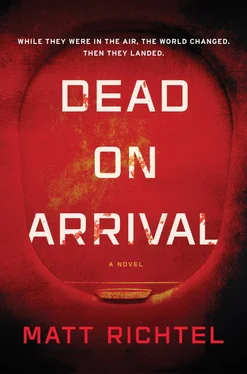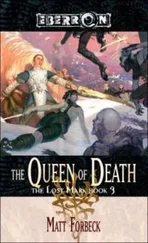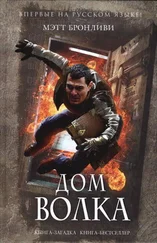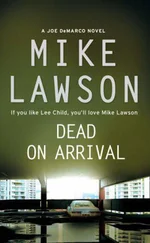Now it was clear what Lyle had meant by she didn’t mean to do it . The wife, he thought, hadn’t meant to poison the husband. Lyle had been right. The husband was suffering from stage four bladder cancer, spread to the lymph nodes, and, as it turned out, he’d dreamed of having puffer fish as a last delicacy. The old man darned well had known it was a win-win; if he survived dinner, it would be a great meal; if he died, a great last meal.
As Lyle stood in the hangar, he pictured the old man, locked in his predeath catatonia and tried in vain to remember how that toxin worked, what its physiological mechanism was. What did puffer fish do to the brain? The answer evaded him. He looked back at the mechanic on the couch and considered the eerie similarity. But there was nothing contagious or widespread about puffer fish, nothing virulent.
“Are you okay, Dr. Martin?” Eleanor said. For an instant, she wondered if the syndrome had hit him, too.
“I’m sorry,” he said, and meant it this time, too. He’d long since learned to apologize after taking his mental junkets. He grimaced.
“Time to let us into your head,” Eleanor said.
This further jerked Lyle back to reality. The pilot sounded like Melanie, in a good way, some appreciation in her voice that he wasn’t just a lummox on a mental vacation.
“Saxitoxin,” he said, with some bit of revelation.
“What’s that?” The first officer suddenly was standing too close for Lyle’s comfort.
“I’m thinking of various poisons, nerve agents, toxins. They can paralyze the body but leave the brain intact, more or less. I can’t remember how they work.”
“What’s saxitoxin?”
“Nerve gas,” Alex said from ten feet away, where she stood next to the boy. Her outburst surprised everyone and seemed a bit to surprise her, too. She stared at them and, nervously, down at her phone. “I’m a comic book geek. Graphic novels. When I was younger, I had a lot of time on my hands…” she said. “It’s kind of a trope, neurotoxins used by bad guys, and saxitoxin gets regularly mentioned.” After a brief pause: “But it was a real thing, not made up, that the government had.”
“That’s right,” Lyle said, remembering. Saxitoxin, he recalled, had been used by American spies in covert operations. Great for assassinations because so little poison brought the desired result: skeletal paralysis and eventual death.
“Nixon ordered it all destroyed,” Alex said. “But some survived.”
Now she really had their attention.
“That’s the lore, anyhow,” she said. She noticed Lyle boring a stare through her, quizzical but distant. She fiddled with her inert phone.
Eleanor noticed that Lyle watched Alex like she was a painting in a museum and he was an obsessing art history student.
“Is your phone working?” Lyle asked Alex.
“No.”
“I notice you keep fiddling with it.”
The passenger didn’t seem like she had anything to add. She, in turn, seemed struck by the way the pilot watched Lyle. Below the surface, cliques were forming, alliances, but they hadn’t solidified.
“We need a plan,” Jerry said.
“I’ll second that motion,” Lyle suddenly said and turned to the first officer. “Let’s move the father into the office with the space heater and I’ll go get the girl from the plane,” he said.
“Say what? What girl?” Jerry turned to Eleanor.
“There’s a girl on the airplane?”
“This is nuts,” Jerry said. “How does he know that? Am I the only one who thinks this is nuts?”
Lyle had reverted to his old style of managing crisis, focusing on the medical issues, in effect barking orders at people with less understanding of the situation. The problem was that, unlike the old days, no one was imbuing him with omniscience or saintlike status. So, to them, he sounded like a know-it-all or, plainly, an asshole. Or a conspirator. What girl was he even talking about?
Undeterred, Lyle started walking back toward the plane.
“Freeze,” Eleanor said.
He kept walking.
“Dr. Martin, I’m still the captain here.”
Lyle turned around.
“A little girl is on that airplane, terrified.”
“How do you know that?”
“She’s immune to this,” he said. “They’re immune, I think.”
He’d seen a little girl on the plane earlier and Eleanor said there was a noise on the plane. It must be the girl. “I’m not, and the rest of us aren’t. I’m probably exposed at this point. I can’t speak for you.”
“Then why didn’t we get it on the airplane—with the rest of them?”
“Were you in the cockpit, er, flight deck?”
Eleanor nodded.
“I don’t know. Something airborne. Something…” He had only the vaguest ideas, not even that, just fuzzy images, not worth sharing. He could feel the shadow of gun-toting Jerry, right on his heels. Lyle shivered; this new world was feeling like a microcosm of the one left behind: growing tension, people getting their backs up, positions taken and entrenched. A gun.
Maybe there was a way to inoculate against Jerry’s seeming desire to escalate, take control. Lyle looked the first officer in the eye.
“Do you have thoughts?” he asked Jerry.
“You’re asking my thoughts? How gracious.”
“You’ve been out here with me, seen the baggage guy, you can see the weather.” Lyle left it open-ended, trying to draw Jerry in. “I don’t know airports, airplanes, weather, any of it. I mean, should we get the bodies into the plane to keep them warm and we can see what’s going on in there?” He paused.
Jerry tried to measure whether he was being baited, couldn’t quite figure it out.
“It would be easier to bring the baggage guy, into the office, back here,” he said.
“Smart,” Lyle said as deferentially as possible.
Twenty minutes later, Lyle had dragged the body of the mechanic by his armpits, with Jerry standing guard, into the back office, along with the bodies of the baggage handler and other workers. Now they stood under the airplane, ready to use the luggage rack as a ladder.
“You or me first?” Lyle asked.
Jerry hesitated.
“I guess I can stand guard,” Lyle said. “You check the plane, which is obviously your baby, and I’ll be down here if something weird goes down. But I one hundred percent defer to you.”
Jerry looked over at the hangar, where Eleanor and the passenger tinkered with the cell phone and watched the child. He could see their outline in the doorway. Jerry tried to look like he was thinking hard about this, making some complex calculation. Truth was, he couldn’t keep up. It was why he loved talk radio, especially Rush Limbaugh; you had to find somebody you could trust in a world where there was just too much to think about.
“I’ve got to overrule you on this one, Dr. Martin. You go in there and do your doctor thing and I’ll keep watch if something goes down. I need to keep an eye on the women and children.”
“But…”
“I’m decided. Let’s keep the chain of command.”
Perfect, Lyle thought. What he had hoped for.
Jerry hoisted him up. “Holler if you need me.”
“If you don’t hear from me in ten minutes,” Lyle said—he paused on what to say next…
“I’ll come rescue you.”
Jesus —Lyle fought a smile— what a prick.
Seconds later, Lyle stood in the flight deck, now holding a Beefeater bottle that he’d snagged in the belly. The plane was just the way he’d remembered it, but darker and colder. The temperature differential between inside and out had diminished. Near freezing in here, though Lyle presumed that was because the cargo-hold door had remained ajar. The passengers, presumably, would be warmer.
Читать дальше












